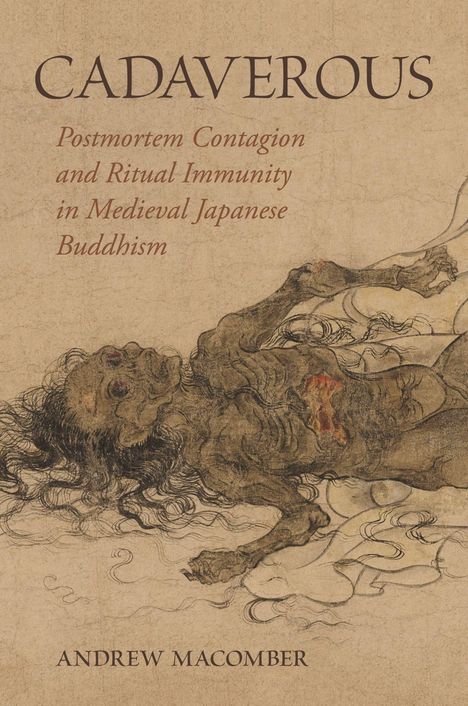Andrew Macomber: Cadaverous, Gebunden
Cadaverous
- Postmortem Contagion and Ritual Immunity in Medieval Japanese Buddhism
Sie können den Titel schon jetzt bestellen. Versand an Sie erfolgt gleich nach Verfügbarkeit.
- Verlag:
- University of Hawaii Press, 05/2026
- Einband:
- Gebunden
- Sprache:
- Englisch
- ISBN-13:
- 9798880701995
- Artikelnummer:
- 12459839
- Umfang:
- 376 Seiten
- Erscheinungstermin:
- 31.5.2026
- Hinweis
-
Achtung: Artikel ist nicht in deutscher Sprache!
Klappentext
From the tenth to the thirteenth centuries, Japanese aristocrats attributed their afflictions to vengeful spirits of the deceased. But in the late twelfth century, a new and anomalous ailment, caused not by spirits but the material dead, crept into their consciousness. "Corpse-vector disease," as it was called, emerged as a new form of "postmortem contagion"---diseases tethered to death that reanimated in pathogenic forms such as ghosts, noxious qi, corpse-worms, and disease-causing demons. In response, Tendai Buddhist monks of the Jimon branch at Onjōji temple engaged creatively with esoteric rites, medical texts, and Daoist scriptures to craft a healing ritual for their patients. Cadaverous is the first book-length work to examine this ritual and its extant manuscripts. Bridging religious studies and medical history, it analyzes Buddhist ritual healing in Japan through the lens of "ritual immunity"---the complex, experimental processes through which monks identified disease agents, demarcated boundaries between self and pathogen, and designed therapeutic interventions.
By exploring the social, moral, material, and ritual dynamics that shaped new disease concepts, Cadaverous reveals how corpse-vector disease reflected growing anxieties surrounding death and pollution in a capital increasingly crowded with corpses. The book offers an unprecedented tour of the therapeutic and ritual culture of early medieval Japan, illuminating how that culture was haunted by darker preoccupations with disease, death, and defilement.


